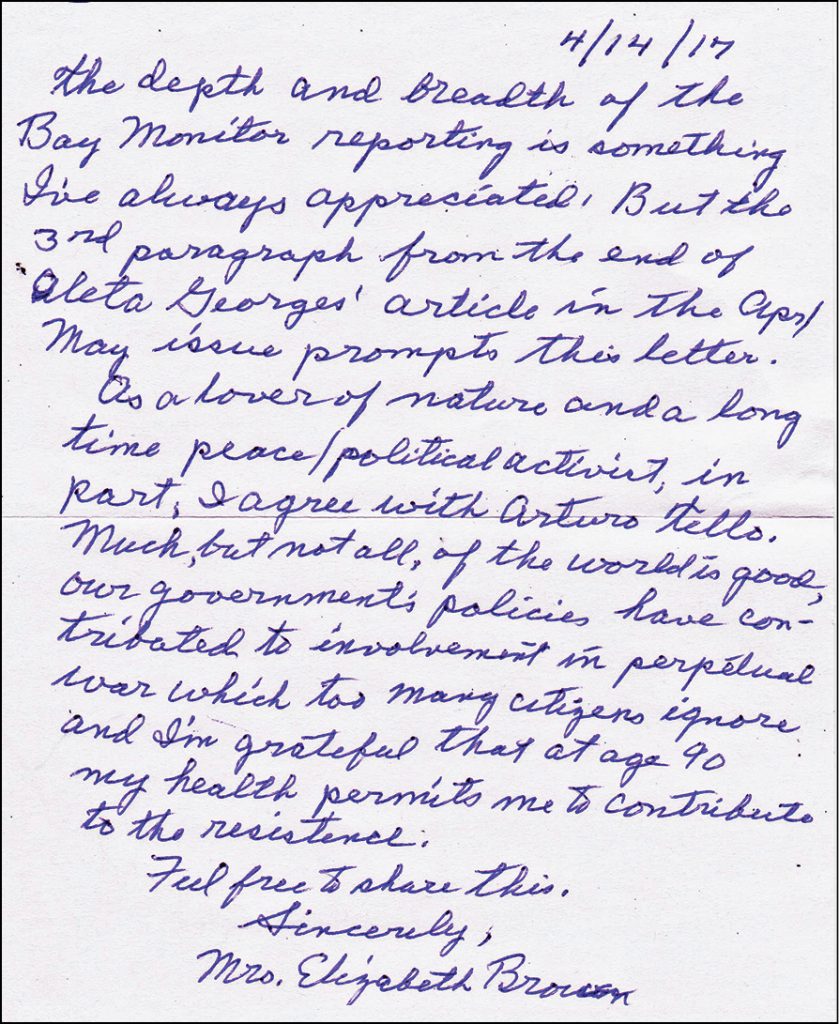Back in April, in the previous edition of the Monitor, I gave the alert that this current June/July 2020 edition could be our very last, due to years of declining funding coupled with the economic fallout of the COVID-19 pandemic. Approaching a new budget year starting July 1, League organizers and I have been uncertain whether we can publish Volume 46, which would represent another year of six bimonthly editions commencing in August.
As I write this, the future remains hazy. We have received word from some funders that they intend to keep sponsoring us, but we are still waiting to hear a final decision from other funders.
Absent a complete picture, we have nonetheless decided to forge ahead with Volume 46. Whether we manage to publish all six editions remains uncertain. We’ll approach each in turn with the understanding that it could be our final one.
To help make ends meet, I am voluntarily taking a pay cut. The national rate of unemployment stands at its highest since the Great Depression, and I’d rather reduce my income than lose this job altogether. Moreover, I’d like to do what I can to help the Monitor continue fulfilling its important role, and thankfully I have a second job to lean on during these difficult times.
We at the League have also discussed the possibility of publishing online only, or decreasing the number of copies we print. We will keep such options in mind moving forward, but they come with thorny problems. To name two: our sponsorships are structured around producing a print product, and we’d lose a significant portion of our readership (libraries in particular) by eliminating said product. And then there is a third that I will get to in a moment.
Our resolve has been bolstered by the many heartening messages of support from our readers — we thank all of you who have written us with your encouragement, compliments, and sympathy. We also thank those readers who have sent monetary donations, including Alice Fredericks, Jody London, Linda Soliven, Holly Austin, Candace Simonen, Douglas Cooper, Rowland Tabor, Abigail Bok, Karen Frost, Leif Wennerberg, Anne Layzer, Elizabeth Rintoul, and Elizabeth Brown.
I’d like to specifically acknowledge the contribution of Elizabeth Brown, who enclosed with her donation check a brief letter proclaiming hope that we won’t stop sending paper copies of the Monitor. She noted that her copies get circulated to at least two other nearby households, and that at age 93 she does not view receiving the Monitor by email as a viable alternative for her.
This is not the first time Elizabeth has contacted us. Three years ago, she sent us a letter in response to our article “The Art of Supporting Open Space,” in which reporter Aleta George quoted painter Arturo Tello as saying “paintings are an embrace that remind you that the world is good, that there is peace, and that it’s good to be alive.” Elizabeth responded:
 Following her suggestion, I did attempt to share the letter, which I found inspirational. I tried to post the above scan with my own explanatory note to the Monitor Facebook page, and even chipped in a few dollars of my own money to promote the post. Facebook’s algorithm blocked it, delivering me an automated message that said my note — which simply provided the necessary context for Elizabeth’s letter — contained too many words.
Following her suggestion, I did attempt to share the letter, which I found inspirational. I tried to post the above scan with my own explanatory note to the Monitor Facebook page, and even chipped in a few dollars of my own money to promote the post. Facebook’s algorithm blocked it, delivering me an automated message that said my note — which simply provided the necessary context for Elizabeth’s letter — contained too many words.
This is how the internet often works, stripping away context in an effort to make content quickly and easily digestible, often as a means to maximizing clicks and other monetizable actions. Disinformation thrives in such an environment, as demonstrated by Facebook’s own example of influencing the 2016 presidential election, just one of countless ways that communication can become warped or fractured online. And on top of all that, reading from screens presents numerous distractions and obstacles to comprehension.
By contrast, the Monitor strives to provide more thoughtful consideration of the issues we cover — another reason for us to maintain a paper edition. It’s simply a better medium for what we’re trying to accomplish.
That said, we are continuing to carve out our own rational-minded corner of cyberspace, especially with Monitor Notes, our weekly email newsletter. This supplement provides useful news and announcements related to the topics and organizations covered in the Monitor, and is something that we expect to be able to keep sending out even if we run out of resources to print the magazine. Monitor Notes is produced by transportation reporter Cecily O’Connor, who applies her wealth of skill and experience to filling these email newsletters with worthwhile information. As always, we encourage you to please sign up at www.bayareamonitor.org/subscribe.
But first, enjoy this last edition of Volume 45. We start with what has lately been a ubiquitous sight — an empty street. Our print edition’s front cover photo of a nearly carless Interstate 280 approaching San Francisco on March 22 comes from Aclima, which measured significantly lower traffic-related air pollution in the wake of the shelter-in-place order, a phenomenon explored in our first article by Leslie Stewart. Cecily follows with further examination of the dip in auto use and how transportation planners are responding, such as with slow streets programs like the one in Emeryville shown in our back cover photo of our print edition. After that, Aleta keeps her eye on the road with a look at the disruptive hazard it can pose to migrating wildlife. And on the topic of wildlife, Robin Meadows wraps up the edition by explaining how one exiled species could return to the Bay.
We hope to return as well. See you in August?
Alec MacDonald
Editor, Bay Area Monitor

